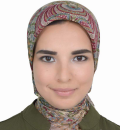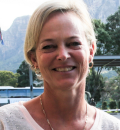Contact
Bel Hanson
Senior Manager
Operations and Programs
This email address is being protected from spambots. You need JavaScript enabled to view it.
Tel: 1-571-293-0286
September 18-20, 2025
Kolkata, India
November 24 - 28, 2025
Adelaide, Australia
Dec 11-13, 2025
Hong Kong, China
ISCB Official Event
Jan 3 - 7, 2026
Big Island, Hawai'i
July 12 - 16, 2026
Washington, D.C., United States
ISCB Flagship Event
August 1 - September 9, 2026
Geneva, Switzerland
ISCB’s Annual Flagship Meeting
Support the society while achieving your marketing goals
Become a ISCB collaborative conference, learn more here
Regional, topical, worldwide - your platform to present science
dedicated to facilitating development for students and young researchers
The ISCB Affiliates program is designed to forge links between ISCB and regional non-profit membership groups, centers, institutes and networks that involve researchers from various institutions and/or organizations within a defined geographic region involved in the advancement of bioinformatics. Such groups have regular meetings either in person or online, and an organizing body in the form of a board of directors or steering committee. If you are interested in affiliating your regional membership group, center, institute or network with ISCB, please review these guidelines (.pdf) and send your exploratory questions to Diane E. Kovats, ISCB Chief Executive Officer (This email address is being protected from spambots. You need JavaScript enabled to view it.). For information about the Affilliates Committee click here.
Topically-focused collaborative communities
Connect with ISCB worldwide
Environmental Sustainability Effort
ISCB is committed to creating a safe, inclusive, and equal environment for everyone
Resource library for education and training materials
Search jobs, find talent
Science at the click of the mouse, recorded talks
High-quality research devoted to computer-assisted analysis of biological data
Latest research and publications
Certifying Quality in Computational Biology Education
Latest updates from ISCB
Highlighting Society events, programs, and achievements
Celebrating scientific achievement and innovation
Honoring our distinguished researchers
Recognizing contributions and achievements
Center for science, collaboration, and training
Bel Hanson
Senior Manager
Operations and Programs
This email address is being protected from spambots. You need JavaScript enabled to view it.
Tel: 1-571-293-0286
 |
Nicola Mulder, PhD University of Cape Town South Africa |
Ahmed Rebai, PhD Centre of Biotechnology of Sfax Tunisia |
 |
 Ozlem Tastan Bishop, PhD
Ozlem Tastan Bishop, PhD
Rhodes University
South Africa
Structuralbio COSI Speaker
Özlem is full professor in structural bioinformatics at Rhodes University.
She received her BSc degree in Physics from Boğaziçi University, Istanbul, Turkey. Then she moved to the Department of Molecular Biology and Genetics at the same University for her MSc degree. She obtained her PhD from Max-Planck Institute for Molecular Genetics and Free University, Berlin, Germany in 2003. While doing her PhD, Özlem became interested in structural biology, and during her postdoctoral positions (Texas University, USA; University of Western Cape and University of Pretoria, South Africa) she gained experience in structural bioinformatics as well as structural biology. In 2009, Özlem took up an academic position at Rhodes University, South Africa. She established Research Unit in Bioinformatics (RUBi) in 2013. She has graduated 13 PhD and over 30 MSc students since she joined Rhodes University. Özlem’s broad research interest is structural bioinformatics and its applications to drug design and development. Her recent interest is in the allosteric mechanisms of proteins and understanding the effects of nonsynonymous single nucleotide variations on protein structure and function, in order: to decode the underlying causes of many inherited diseases; to uncover drug resistance mechanisms; and to investigate drug sensitivity issues in certain populations for precision medicine purposes. She has published over 70 research articles.
Understanding the effects of mutations on protein drug targets of pathogens for rational drug research and development
Computational drug discovery has been successfully used for drug design. However, consideration of the impact of evolutionary mutations of pathogens, including those linked to drug resistance, is mostly undetermined. This talk focuses on understanding the effects of variations in drug targets for designing novel therapies, via three examples: 1. HIV protease drug resistance (PMID: 30560871); 2. Resistance mutations of Mycobacterium tuberculosis pyrazinamidase (PMID: 32489525); 3. Impact of mutations on SARS-CoV-2 Mpro (PMID: 32853525).
 Ananyo Choudhury, PhD
Ananyo Choudhury, PhD
University of the Witwatersrand
South Africa
Populations Genomics COSI Speaker
Ananyo Choudhury obtained his Ph.D. in Bioinformatics from the University of Calcutta, India and Postdoctoral training at the Sydney Brenner Institute for Molecular Bioscience (SBIMB) at the University of Witwatersrand. He is currently employed at SBIMB as a Senior Scientist and co-leading several components for the NIH-funded AWI-Gen Study. He is the also the co-chair of the H3Africa Genome Analysis Working Group. He has played a lead role in several major genomic studies conducted in Africa including the South African Human Genome Project. the H3Africa genotyping array design, the H3Africa WGS Study. His research interests are population genomics and genomics of complex traits.
H3-Africa consortium studies : genomics resources and insights
I plan to introduce some of the key genomics resources and insights that have been generated by the H3-Africa consortium. This would include snapshots of the H3-Africa genotyping array, imputation facility, whole genome and exome sequences and large-scale genotype-array datasets. I will demonstrate with a couple of examples how such resources are enhancing our understanding of population and disease genetic at the continental level as well as at the level of individual countries/regions.
 Sara Ettamimi, PhD
Sara Ettamimi, PhD
University Sidi Mohamed Ben Abdellah
Morocco
She obtained her PhD in biotechnology from the University Sidi Mohamed Ben Abdellah, Morocco in 2021 and a Master degree in Microbiology and Biotechnology in 2014 from the same university. She has a background in Molecular Biotechnology and Bioinformatics, her research aimed to explore microbial diversity of Moroccan freshwater and Portuguese mining contaminated water using a metagenomic approach. During her PhD. Dr Ettamimi received several grants and fellowships. In 2017, she worked as visiting research fellow in the Center of Marine Science CCMAR, Portugal within the Erasmus+ Project, also in 2018 in the Center for Ecology and Hydrology CEH, Oxford under the prestigious EMBO short-term fellowship. Including trainings and workshops, Dr Ettamimi, was part of different metagenomics and bioinformatics events as speaker and trainer.
Metagenomic analysis as new approach for monitoring aquatic microbiome in Africa
Water quality in Africa is an important public health issue. Many studies have been conducted in the African continent in order to investigate microbial pathogens affecting human health. While traditional microbiological freshwater tests focus on the detection of specific bacterial indicator, metagenomic approach basing on a total DNA sequencing seems to be a good alternative to access the whole freshwater microbiome and his interaction with environmental parameters in situ.
https://doi.org/10.1007/
 Olivier Hanotte, PhD
Olivier Hanotte, PhD
University of Nottingham
United Kingdom
Agricultural Bioinformatics COSI Speaker
The central theme of Dr. Hanotte's research is understanding at the genome level the origin and the history of the diversity and the genetic adaptations of “tropical’’ livestock to their production environments (cattle, chicken, sheep). They aim to unravel the genetic control of functional diversity for their uses in breeding improvement programs. They studied both Mendelian and quantitative traits. They use multi-omic approaches with in depth genome sequences analysis of diversity a major component of our research activities. Over the years, they have published more than 200 peer reviewed publications in these areas with collaborators from across the world and, in particular, with the support and help of many African institutions, scientific collaborators and farmers.
The genome landscape of African cattle
The increased availability of full genome sequences of African cattle combined with new bioinformatics analysis is opening new doors in our understanding of the origins of African cattle diversity, its evolution and the local adaptation of African cattle to environmental challenges. The findings have major implications in the design of new breeding programs combining productivity improvement with environmental sustainability in the increasing worrying context of climate change. This talk will summarise here the latest research breakthrough from the past ten years.
 Placide Mbala, PhD
Placide Mbala, PhD
METABIOTA
Democratic Republic of the Congo
Pathogen COSI Speaker
MBALA-KINGEBENI Placide, is a Medical Doctor and Associate Professor at the Faculty of Medicine of the University of Kinshasa, and in charge of the Department of Epidemiology and of the pathogen sequencing laboratory of the National Institute of Biomedical Research of Kinshasa, in the Democratic Republic of the Congo. Since 2014, he has been coordinating the diagnosis of viral haemorrhagic fevers and other viral diseases by actively participating in the response to Ebola virus disease epidemics and the COVID-19 pandemic, under the supervision of Professor Muyembe.
 Nicola Mulder, PhD
Nicola Mulder, PhD
University of Cape Town
Professor Mulder heads the Computational Biology Division at the University of Cape Town (UCT), and is a full member of the Institute of Infectious Disease and Molecular Medicine. She leads H3ABioNet, a large Pan African Bioinformatics Network of 28 institutions in 17 countries, which aims to develop bioinformatics capacity to enable genomic data analysis on the continent. H3ABioNet has developed an extensive training program for African researchers. She also co-leads a Sickle Cell Disease Data Coordinating Centre and a Wellcome Trust Centre Data Integration Platform at UCT. She received her PhD in Medical Microbiology from the University of Cape Town and then worked for 8.5 years at the European Bioinformatics Institute in Cambridge, as a Team Leader. At UCT her research focuses on genetic determinants of susceptibility to disease, African genome variation, and microbial genomics and infectious diseases from both the host and pathogen perspectives. Her group provides bioinformatics services and training and develops new algorithms and resources for the analysis of complex African genetic data. Prof Mulder is actively involved in capacity development, including training, education and curriculum development in Bioinformatics. She also sits on a number of international scientific advisory boards.
Studying African Genetic Diversity and Applications in Health
African populations are known to harbour the greatest genetic diversity on earth. African genomes have been shaped by many factors, including infectious diseases, diet and exposure to unique environmental conditions. Studying African genetic diversity has the potential to improve our understanding of the genetic basis for many diseases not only in Africa, but for global populations. However, data from African populations is still relatively sparse, and the tools and skills for analyzing the data have been lacking on the continent. The H3Africa consortium, established more than 8 years ago, has changed the landscape of African genomics through the generation of large datasets to study the genetic and environmental basis for diseases. H3ABioNet, the consortium’s pan African bioinformatics network, has helped to build the capacity and tools to enable analysis of the data on the continent. This talk will discuss some of the challenges in studying African genomics, how these are being overcome, and some of the new tools being developed to interrogate the data. Analysis of an H3Africa dataset of whole genome sequences will be presented, along with a discussion on the potential health applications.
 Radoslaw Poplawski, PhD
Radoslaw Poplawski, PhD
University of Birmingham
United Kingdom
SysAdmin COSI Speaker
Radoslaw works as a sysadmin in Advanced Research Computing (ARC) at the University of Birmingham. He has interests in High Performance Computing and Big Data. As part of ARC he’s managing Openstack clusters, CEPH and Spectrum Scale storage systems and a dedicated high speed research network spanning across the whole campus.
Radoslaw is involved in multiple UK wide projects including Cloud Infrastructure for Microbial Bioinformatics (www.climb.ac.uk) where he’s looking after Birimingham’s CLIMB cluster, and COVID-19 Genomics UK Consortium (cogconsortium.uk) where he built the central infrastructure to support the UK’s national SARS CoV2 sequencing and analysis effort. Further to this Radoslaw developed “Lab-on-an-ssd” for the ARTIC Network project (https://artic.network/lab-on-an-SSD).
Handling 500000 SARS-CoV-2 samples or: How I learned to stop worrying and love the storage
At the beginning of the COVID pandemic the UK launched a nationwide genome sequencing effort: the COVID-19 Genomic UK Consortium. In order to handle the deluge of data coming in (over 10000 samples per week) a bespoke system needed to be developed. In this talk, I’ll go over the infrastructure we setup including storage, compute and supporting services. I’ll highlight the quirks and challenges we encountered over the last year.
 Ahmed Rebai, PhD
Ahmed Rebai, PhD
Centre of Biotechnology of Sfax
Tunisia
Dr. Ahmed Rebai received his engineer degree in Statistical Genetics in 1991 from the Institut National Agronomique de Paris-Grignon, France and his PhD from the same university in 1995 on developing methods and computational tools for genetic mapping. He then worked at the Institute National Agronomique de Toulouse (France) as a post-doc researcher in Bioinformatics. He subsequently served as assistant professor of Biostatistics at Institut National Agronomique de Tunisie (Tunisia) in 1998 and then as a researcher in the Centre of Biotechnology of Sfax since 1999. In 2002 he obtained the degree of ‘Habilitation à Diriger des Recherches’ in Life Sciences from the University of Paris 11, France.
Dr. Rebai has contributed greatly to the development of Biostatistics and Bioinformatics teaching and research in Tunisia and Africa where he leaded and contributed to several national and international initiatives in these fields. He was invited professor in Biostatistics at LeMans University (France) in 2008/2010 and 2019 and invited lecturer at several international workshops in Bioinformatics/Biostatistics and served as an expert evaluator for several universities around the world. He is an expert member in different national and international bodies (Data and Biospecimen Access Committee of the H3Africa since 2015; the independent expert committee for the National agency of sanitary and environmental control of products since 2018; College of experts of AREF/UK, 2020; TSC of the Good Research Management Practice of the African Academy of Science since 2020).
Genomics and bioinformatics screening of biomarkers for potential use in risk assessment and prognosis of cardiovascular diseases
A collaborative work between the Centre of Biotechnology of Sfax and the Cardiology department of the Sfax University Hospital, ongoing for over 10 years, aims to investigate the use of genetic and inflammation biomarkers as well as microbiome signature for use in diagnosis/prognosis of CVD in the Tunisian population.
In this talk we describe different genomics and bioinformatics tools used to screen and identify key genetic factors and biomarkers and present the most relevant results.
Coming soon.
Coming soon.
Coming soon.
| June 7, 2021 | ||
9:00 AM - 1:00 PM CAT |
Infectious Diseases Genomics Workshop (RNA seq data analysis in Linux) or Learning Adventures on Bioinformatics Data Investigations |
|
1:30 PM - 5:30 PM CAT |
Tools for reproducible research in Bioinformatics or An introduction to biomedical text mining in the era of deep learning |
|
| ***complimentary with conference registration*** | ||
| June 8, 2021 | ||
| 2:00 PM - 2:45 PM CAT | Welcome and Keynote Speaker Nicola Mulder |
|
| 2:45 PM - 3:00 PM CAT | Pathogen COSI Invited Speaker Placide Mbala | |
| 3:00 PM - 3:45 PM CAT | Pathogen COSI Talks | |
| 3:45 PM - 4:00 PM CAT | Break | |
| 4:00 PM - 4:15 PM CAT | Population Genomics COSI Invited Speaker Ananyo Choudhury | |
| 4:15 PM - 5:00 PM CAT | Population Genomics COSI Talks | |
| 5:00 PM - 5:30 PM CAT | Break | |
| 5:30 PM - 6:30 PM CAT | Research Exchange Forum | |
| June 9, 2021 | ||
| 2:00 PM - 2:15 PM CAT | Meta-omics COSI Invited Speaker Sara Ettamimi | |
| 2:15 PM - 3:00 PM CAT | Meta-omics COSI Talks | |
| 3:00 PM - 3:15 PM CAT | Break | |
| 3:15 PM - 3:30 PM CAT | Structural Biology COSI Invited Speaker Ozlem Tastan Bishop | |
| 3:30 PM - 4:15 PM CAT | Structural Biology COSI Talks | |
| 4:15 PM - 4:45 PM CAT | Break | |
| 4:45 PM - 5:45 PM CAT | Research Exchange Forum | |
| 5:45 PM - 7:15 PM CAT | Career Workshop - From idea to a brilliant company | |
| June 10, 2021 | ||
| 2:00 PM - 2:15 PM CAT | Systems Admin COSI Invited Speaker Radoslaw Poplawski | |
| 2:15 PM - 3:00 PM CAT | General Bioinformatics Talks | |
| 3:00 PM - 3:15 PM CAT | Break | |
| 3:15 PM - 3:30 PM CAT | Agricultural Bioinformatics COSI Invited Speaker Olivier Hanotte | |
| 3:30 PM - 4:15 PM CAT | Agricultural Bioinformatics COSI Talks | |
| 4:15 PM - 4:45 PM CAT | Break | |
| 4:45 PM - 5:45 PM CAT | Research Exchange Forum | |
| 5:45 PM - 6:45 PM CAT | Poster Flash Talks & Awards | |
Coming soon.
ISCB-Africa ASBCB Bioinformatics Conference welcomes original research and previously published research submissions for oral presentation (flash talk) and/or poster presentation consideration.
Abstract submissions are intended to convey a scientific result that is original work/previously published work, and are not advertisements for commercial software packages. Abstracts may cover any area of computational biology, but preferably within one of the topic areas of the ASBCB Communities of Special Interest (COSI) listed below:
All abstracts must be a maximum of 250 words (to appear in the conference online booklet) and should provide at the least the following information within them: background information, approach/methods, results and conclusions (actual headings within the abstract are not necessary). Authors may submit an additional paragraph of up to 250 words stating the relevance of the work for the purpose of convincing reviewers of the scientific content/validity; these additional 250 words will not be published and are for reviewing purposes only. Authors will be asked to select their preference of presentation (oral, oral & poster, or just poster) during the submission process.
Original Abstract Submissions for Oral/Poster Presentation Deadline is 19 April 2021.
Abstract submissions must be a maximum of 250 words (to appear in the online conference booklet) and should provide an explanation of how the work of the submitted paper(s) is impacting the field. Submission must highlight work that has been published between June 2018 - present. Authors will be asked to select their preference of presentation (oral, oral & poster, or just poster) during the submission process.
Submissions should include the following:
Previously Published Research Submission (Oral and Poster) Deadline is 19 April 2021.
ISCB Members enjoy discounts on conference registration (up to $150), journal subscriptions, book (25% off), and job center postings (free).
Connecting, Collaborating, Training, the Lifeblood of Science. ISCB, the professional society for computational biology!
Giving never felt so good! Considering donating today.